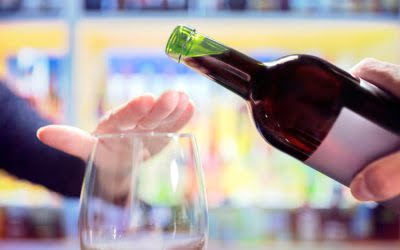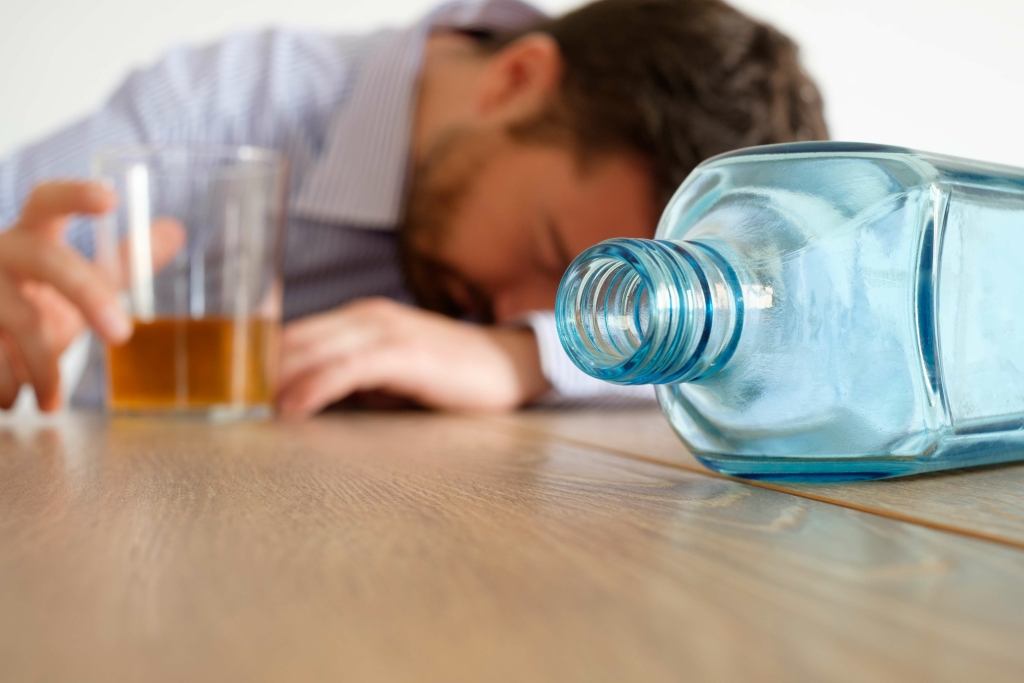Contents

This enormous drinking boom led to moral objections, and in 1919, Prohibition was enacted in the U.S. Alcohol was illegal, at least in name, but underground trade flourished. Organized crime came into its heyday, and speakeasies became a fashion of the day. Prohibition was, by and large, a failure, but it still didn’t get repealed until 1930, just after the Great Depression hit.
Aftercare is one of the best possible ways to prevent relapse. Problem drinking has multiple causes, with genetic, physiological, psychological,and social factors all playing a role. For some alcohol abusers, psychological traits such as impulsiveness, low self-esteem and a need for approval prompt inappropriate drinking. Some individuals drink to cope with or “medicate” emotional problems.
Unlike cocaine or heroin, alcohol is widely available and accepted in many cultures. It’s often at the center of social situations and closely linked to celebrations and enjoyment. WebMD Connect to Care helps you find services to manage your health. When you purchase any of these services, WebMD may receive a fee.

Therapy can help you identify the root causes of your alcohol use, repair your relationships, and learn healthier coping skills and how to deal with triggers that could cause you to relapse. Residential treatment involves living at a treatment facility while undergoing intensive treatment during the day. It’s much easier to avoid drinking if you don’t keep temptations around. For 3 to 4 weeks, write down every time you have a drink and how much you drink.
An estimated 855,000 adolescents – ages 12 to 17 – had AUD in 2012. The number of adults seeking treatment from a specialized alcohol facility has remained consistent in recent years – around 1.2%. Participating in a recovery program with the help of a rehab specialist will give you the greatest chance for long-term sobriety. Treatment providers guide you through every step of the recovery process and help you set achievable sobriety goals. After rehab, your specialist will put you in touch with alcohol abuse counselors and support groups, like Alcoholics Anonymous and Al-Anon.
Effects of Alcohol Abuse and Addiction
If you’re reluctant to turn to your loved ones because you’ve let them down before, consider going to couples counseling or family therapy. Distance yourself from people who don’t support your efforts to stop drinking or respect the limits you’ve set. This may mean giving up certain friends and social connections.

Damage to the central nervous system and peripheral nervous system can occur from sustained alcohol consumption. A wide range of immunologic defects can result and there may be a generalized skeletal fragility, in addition to a recognized tendency to accidental injury, resulting in a propensity for bone fractures. Alcoholics may also require treatment for other psychotropic drug addictions and drug dependencies. Benzodiazepines may be used legally, if they are prescribed by doctors for anxiety problems or other mood disorders, or they may be purchased as illegal drugs. Benzodiazepine use increases cravings for alcohol and the volume of alcohol consumed by problem drinkers. Benzodiazepine dependency requires careful reduction in dosage to avoid benzodiazepine withdrawal syndrome and other health consequences.
This rare, emergency condition causes dangerous changes in the way your brain regulates your circulation and breathing, so it’s important to get to the hospital right away. Partial hospitalizationis for people who require ongoing medical monitoring but have a stable living situation. These treatment programs usually meet at the hospital for 3-5 days a week, 4-6 hours per day. The first step is often to consult your primary care doctor or GP. Your doctor can evaluate your drinking patterns, diagnose any co-occurring disorders, assess your overall health, and offer treatment referrals.
Psychologists who are trained and experienced in treating alcohol problems can be helpful in many ways. Before the drinker seeks assistance, a psychologist can guide the family or others in helping to increase the drinker’s motivation to change. Individuals often hide their drinking or deny they have a problem. Carbohydrate-deficient transferrin is a blood test that helps detect heavy alcohol consumption.
Questions About Treatment?
Medically Reviewed By Dr. Kevin Wandler, MDA licensed behavioral health or medical professional on The Recovery Village Editorial Team has analyzed and confirmed every statistic, study and medical claim on this page. Alcoholism, like other addictions, is ultimately a learned behavior, and a person’s thoughts and beliefs come into play. For example, someone who doesn’t believe in treatment and recovery is unlikely to put forward the effort necessary to successfully complete treatment. A person’s developmental maturity can also be a contributing factor. Drinking alcohol stimulates the release of dopamine and endorphins within the brain. Specifically, some people’s brains released more pleasure chemicals in response to alcohol, making them more susceptible to physical dependency.
- By 1830, that number had doubled, and colonists over the age of 15 drank more than seven gallons of alcohol a year.
- Fortunately, if a person can end their substance abuse, their body and brain can begin the recovery process.
- If they drink, ask them to support your recovery by not doing so in front of you.
- Benzodiazepine dependency requires careful reduction in dosage to avoid benzodiazepine withdrawal syndrome and other health consequences.
- It has a sort of therapeutic role in our society; how often have you said after a long day or a stressful situation, “I need a drink”?
Make meetings a priority – Join a recovery support group, such as Alcoholics Anonymous , and attend meetings regularly. Spending time with people who understand exactly what you’re going through can be very healing. You can also benefit from the shared experiences of the group members and learn what others have done to stay sober.
Before water purification measures, beer and other alcohol were safer to drink than water. But for some context, by 1830, the average person was consuming just under 2 bottles of 80-proof liquor every week. If you often find yourself having a drink to take the edge off a stressful day or particularly strong emotions like depression, anxiety, etc., it’s a big sign that you’re using alcohol as an emotional crutch. This is a bad habit that can quickly turn into a serious problem. Alcohol addiction can be a stumbling block, but it doesn’t necessarily prevent you from having a successful career again or for the first time. During treatment, counselors can help you plan for the future and discover what your purpose is in life.
Heavy drinkers will begin to drink even more in an attempt to keep withdrawal at bay. Historically the name dipsomania was coined by German physician C. The term alcoholism was first used in 1849 by the Swedish physician Magnus Huss to describe the systemic adverse effects of alcohol. People will drink to regain that happy feeling in phase 1; the drinking will increase as more alcohol is required to achieve the same effect. Alcohol is the most available, widely consumed, and widely misused recreational drug. Beer alone is the world’s most widely consumed alcoholic beverage; it is the third-most popular drink overall, after water and tea.
The harmful use of alcohol causes a high burden of disease and has significant social and economic consequences. Beyond health consequences, the harmful use of alcohol brings significant social and economic losses to individuals and society at large. Some people combine alcohol use with prescription or illicit drugs. The substances’ strength and predictability can be significantly affected, and even deadly. Alcohol, in particular, is dangerous to mix with other substances since it is a depressant.
Alcohol Combined With Other Drugs
While many what causes alcohol addiction are recognizable, others may be more difficult to identify. Also, the severity of alcohol abuse may play a role in the warning signs a person exhibits. For example, some people try to cover their alcohol abuse by drinking in private and isolating themselves from others.
Reviewing the results, you may be surprised at your weekly drinking habits. Make it clear that drinking will not be allowed in your home and that you may not be able to attend events where alcohol is being served. Teen Counseling is an online therapy service for teens and young adults. I’d have more time and energy for the people and activities I care about. A treatment facility paid to have their center promoted here.
Most people who are binge drinkers are not identified as alcoholdependent. While these signs don’t always indicate a problem with alcohol use, they are red flags that your teenager needs help. Consult with a program that specializes in helping teens with alcohol addiction. Your teen has hope for recovery, especially if you seek treatment as soon as possible. One of the most important things to know when you or a loved one are dealing with alcohol addiction is that it is a disease. There is a huge stigma surrounding addiction and treatment in our culture because people view it as a moral failing.
Topiramate, a derivative of the naturally occurring sugar monosaccharide D-fructose, has been found effective in helping alcoholics quit or cut back on the amount they drink. Evidence suggests that topiramate antagonizes excitatory glutamate receptors, inhibits dopamine release, and enhances inhibitory gamma-aminobutyric acid function. A 2010 review found that topiramate may be superior to existing alcohol pharmacotherapeutic options.
When people are ready to make a significant change and work toward a lifetime of sobriety, alcohol treatment centers are ideal. Gateway offers clients a full continuum of care, which means that clients can find the programs that best fit their needs, their health and their schedules. All three of these therapies have demonstrated their effectiveness. Psychologists can also diagnose and treat these “co-occurring” psychological conditions. Further, a psychologist may play an important role in coordinating the services a drinker in treatment receives from various health professionals. According to the American Psychiatric Association , alcohol addiction, or alcohol use disorder , isconsidered a mental health disorderin which the drug causes lasting changes in the brain’s functioning.
These changes make continued use and relapse more likely in the future. Because symptoms can range from mild to severe in intensity, alcoholism can create numerous effects on someone’s mental, physical, social and spiritual health. Alcohol is the most commonly used addictive substance in America today, but exactly what makes alcohol addictive? According to the NCADD, 17.6 million people in the United States suffer from alcohol dependence or chronic alcohol abuse. That’s about one in twelve adults, with many more engaging in unhealthy binge drinking habits that can develop into alcoholism. We publish material that is researched, cited, edited and reviewed by licensed medical professionals.
